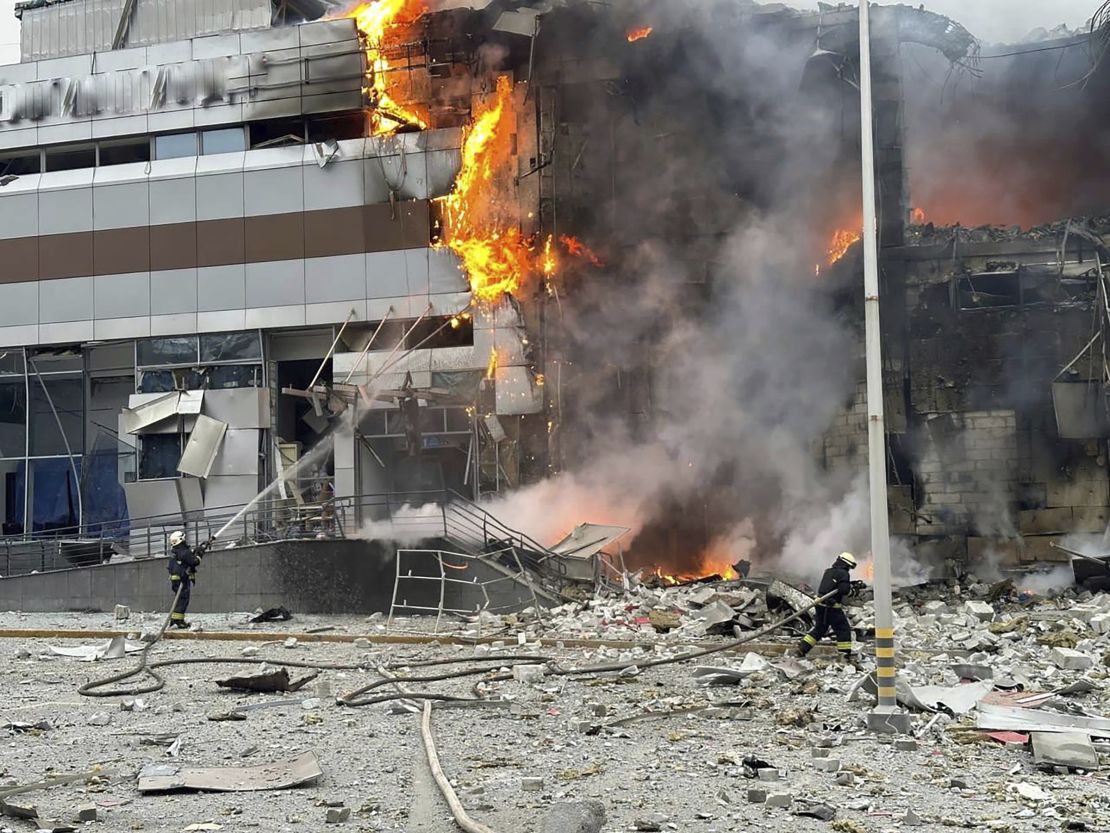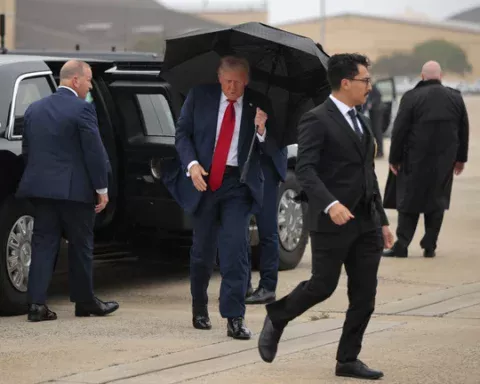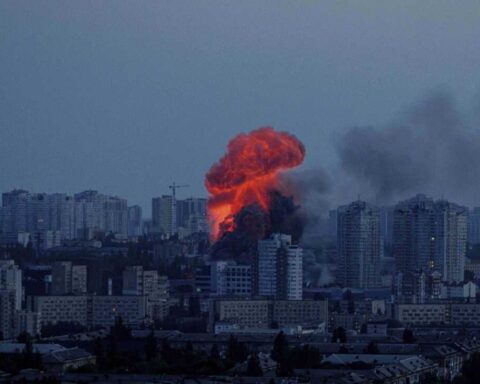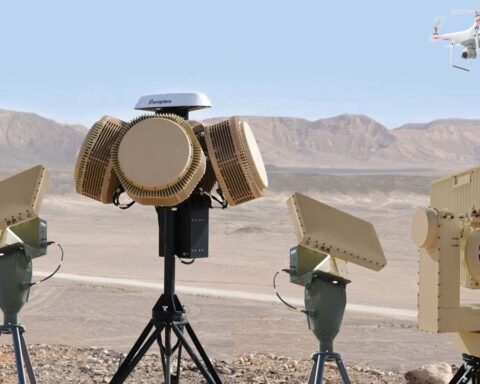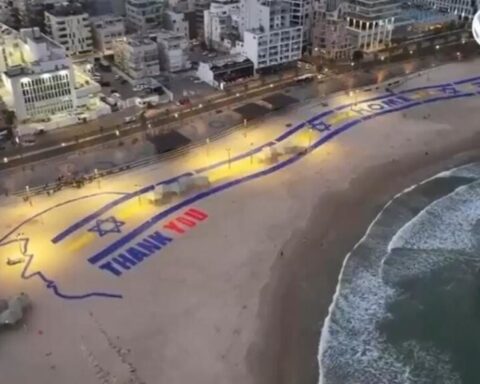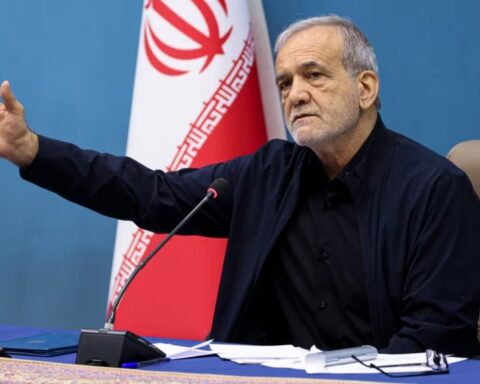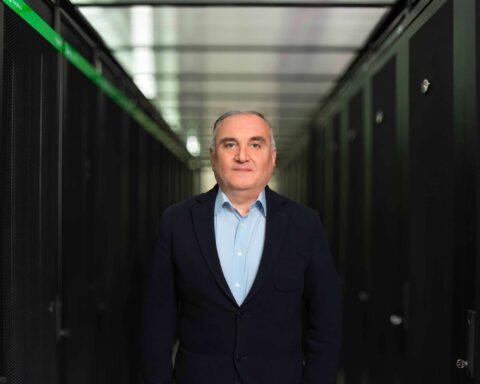In a striking departure from his earlier promises to swiftly end the Russia-Ukraine conflict, President Donald Trump compared the war to a children’s brawl, suggesting that it might be better to let Ukraine and Russia “fight for a while” before intervening.
The analogy, delivered during a meeting with German Chancellor Friedrich Merz, reflects a growing pessimism in the White House about brokering peace in a war now in its fourth year. Trump’s remarks, which drew sharp criticism from Ukrainian leaders and raised eyebrows among allies, signal a potential shift in U.S. policy as the conflict escalates with devastating Russian airstrikes and Ukraine’s bold drone operations.
The comments were made on June 5, 2025, during an Oval Office meeting with Merz, who had traveled to Washington to urge stronger U.S. support for Ukraine. Trump’s analogy, which he said he also shared with Russian President Vladimir Putin during a 75-minute phone call the previous day, likened the warring nations to “two young children fighting like crazy” in a park, suggesting that pulling them apart too soon might be futile. The remarks came just days after Ukraine’s audacious “Spiderweb” drone operation targeted Russian strategic bombers, prompting Russia to launch one of its largest air attacks on Ukraine, killing at least four and injuring dozens across multiple cities.
A Shifting Tone on a Global Crisis
Trump’s comparison of the Russia-Ukraine war to a playground scuffle marks a stark contrast to his campaign rhetoric, where he confidently claimed he could resolve the conflict “in a day.” Speaking alongside Merz, Trump described the war as driven by deep-seated animosity, noting, “There’s a lot of bad blood” between Putin and Ukrainian President Volodymyr Zelensky. He extended the analogy to a hockey game, suggesting that, like referees who let players brawl briefly, he might allow the conflict to continue before stepping in. “Sometimes you’re better off letting them fight for a while and then pulling them apart,” he said, a sentiment he claimed to have conveyed directly to Putin.
The timing of Trump’s remarks is significant. They followed Ukraine’s June 1 drone strike, which damaged or destroyed dozens of Russian Tu-95 and Tu-22M bombers at air bases across five time zones. The operation, meticulously planned over 18 months, was a tactical triumph for Ukraine, costing Russia an estimated $7 billion in losses. Russian officials, humiliated by the strike, vowed retaliation, and on June 6, Moscow launched a massive assault involving over 400 drones and 40 missiles, targeting Kyiv, Lviv, Sumy, and other Ukrainian regions. The attack left residential buildings in flames, disrupted power for thousands, and underscored the war’s escalating brutality.
Trump Compares Ukraine-Russia War to Kids’ Brawl
Trump’s analogy, delivered with German Chancellor Merz sitting silently beside him, stunned observers for its casual tone amid a conflict that has claimed tens of thousands of lives. “You see it in hockey. You see it in sports. The referees let them go for a couple of seconds,” Trump elaborated, suggesting that the war’s intensity might need to “play out” before a resolution becomes feasible. He acknowledged the suffering on both sides but expressed frustration with both leaders, reportedly calling Zelensky a “bad guy” who risks nuclear escalation and expressing disappointment that his personal rapport with Putin has not yielded a swift end to the war.
Merz, a conservative who assumed Germany’s chancellorship in May, sought to steer Trump toward a more proactive stance. Invoking the D-Day invasion’s 81st anniversary, he reminded Trump of America’s historical role in ending European conflicts, saying it led to “the liberation of my country from Nazi dictatorship.” Trump, unmoved, quipped, “That was not a pleasant day for you,” before pivoting to boast about U.S. economic and military achievements. Merz, undeterred, pressed for increased sanctions on Russia and military support for Ukraine, but Trump remained noncommittal, saying only that he would know when the time was right for action.
Ukraine’s Daring Strike and Russia’s Retaliation
The backdrop to Trump’s comments was Ukraine’s “Spiderweb” operation, a sophisticated drone attack that exposed vulnerabilities in Russia’s air defenses. Launched on June 1, the operation involved 117 drones smuggled into Russia on trucks and unleashed from close range, targeting airfields in Murmansk, Irkutsk, and beyond. Videos showed flames erupting from strategic bombers, with Ukraine claiming to have destroyed 13 aircraft critical to Russia’s missile campaigns. The strike, which Zelensky justified as a response to Russia’s bombing of Ukrainian cities, was a propaganda victory but also a provocation, prompting Putin to vow a “very strong” response.
Russia’s retaliation on June 6 was one of the war’s largest air assaults, with 407 drones, 40 cruise missiles, and six ballistic missiles targeting nine Ukrainian regions. In Kyiv, air defenses intercepted many projectiles, but the attack still killed three first responders and injured 20 others. Residential buildings, schools, and metro tracks were damaged, and power outages affected thousands. Zelensky condemned the attack as a deliberate targeting of civilians, urging global leaders to increase pressure on Moscow. “With every new strike, Russia is giving the finger to the entire world,” he posted on social media, warning that delays in diplomacy embolden Putin.
A Frustrated Diplomatic Landscape
Trump’s laissez-faire stance comes at a critical juncture. Peace talks in Istanbul, mediated by Turkey, collapsed days before his remarks, with Russia sending a low-level delegation and demanding Ukraine’s neutrality and demilitarization—terms Kyiv rejected outright. Ukrainian Foreign Minister Andrii Sybiha accused Russia of using the talks as a stalling tactic while escalating attacks. Trump’s refusal to commit to new sanctions on Russia, despite pressure from European allies, has raised concerns about waning U.S. support for Ukraine. He even suggested punitive measures against both nations, saying, “It takes two to tango,” a comment that drew sharp rebukes from Ukrainian officials.
Ukrainian lawmaker Oleksandr Merezhko criticized Trump’s failure to urge restraint during his call with Putin, noting that Russia’s subsequent attack targeted civilians. “When Putin mentioned he is going to avenge or deliver a new strike against Ukraine, President Trump didn’t say, ‘Vladimir, stop,’” Merezhko said. Analysts warn that Trump’s hands-off approach risks alienating NATO allies, who are preparing for a summit focused on bolstering Ukraine’s defenses. Trump’s aides have downplayed expectations of new sanctions at upcoming summits, citing his reluctance to push Putin away from the negotiating table.
Strategic and Nuclear Concerns
Ukraine’s strike on Russia’s nuclear-capable bombers has heightened fears of escalation. Retired Lt. Gen. Keith Kellogg, Trump’s envoy to Ukraine, warned that targeting Russia’s “nuclear triad” raises the risk of unpredictable responses. “When you attack an opponent’s part of their national survival system, the risk level goes up,” he told Fox News. Russian hardliners, incensed by the strike, have called for severe retaliation, with some invoking nuclear options. While Russia’s nuclear submarines and intercontinental missiles remain intact, the loss of irreplaceable bombers has strained its long-range capabilities, forcing a shift to drones and ballistic missiles.
For Ukraine, the operation was a strategic triumph but a gamble. By demonstrating its ability to strike deep into Russia, Kyiv bolstered domestic morale and sent a message to Moscow. However, it also risks provoking a cornered Russia, especially as Putin faces domestic pressure to respond forcefully. Fiona Hill, a former Trump adviser, noted that Putin’s nuclear saber-rattling exploits Western fears, particularly Trump’s, rooted in Cold War-era anxieties. “It’s very clear to Putin that he’s got everybody where he wants them,” she said.
A War at a Crossroads
Trump’s brawl analogy has sparked outrage and concern, with critics like Ukrainian social media users calling it “cynical” and “stupid” for trivializing a war that has displaced millions and leveled cities. Yet, Trump insisted he is “for stopping killing,” suggesting his stance may evolve as he faces pressure at upcoming NATO and G7 summits. His reluctance to approve new military aid for Ukraine or endorse bipartisan sanctions legislation championed by Senator Lindsey Graham reflects a cautious approach, driven by his belief that a swift resolution may not require further escalation.
As Russia and Ukraine exchange blows, the war shows no signs of abating. Ukraine’s continued strikes on Russian targets, including airfields and the Kerch Bridge, signal its resolve, while Russia’s massive air assaults underscore its willingness to inflict pain. With peace talks stalled and Trump’s diplomacy faltering, the international community faces a daunting challenge: pressuring both sides toward a ceasefire or risking a conflict that could spiral further into uncharted territory.
Focus Keywords: Trump Ukraine-Russia war, kids’ brawl analogy, Russia-Ukraine conflict, Spiderweb operation, Putin retaliation, Zelensky, Merz, peace talks, NATO summit, nuclear escalation




